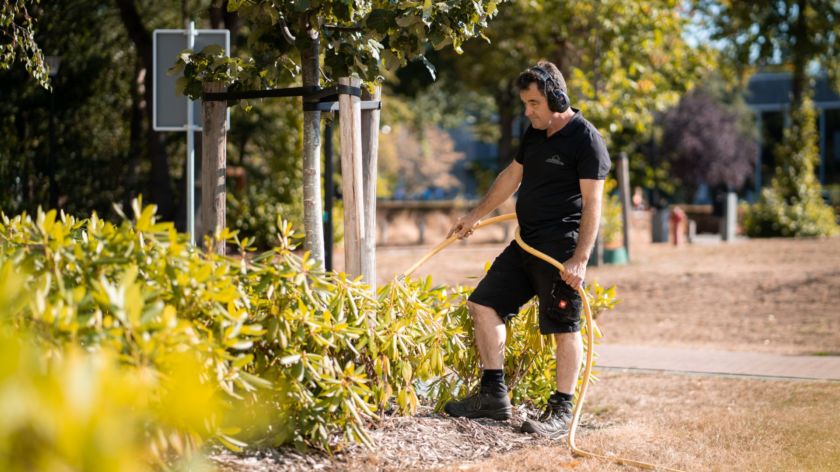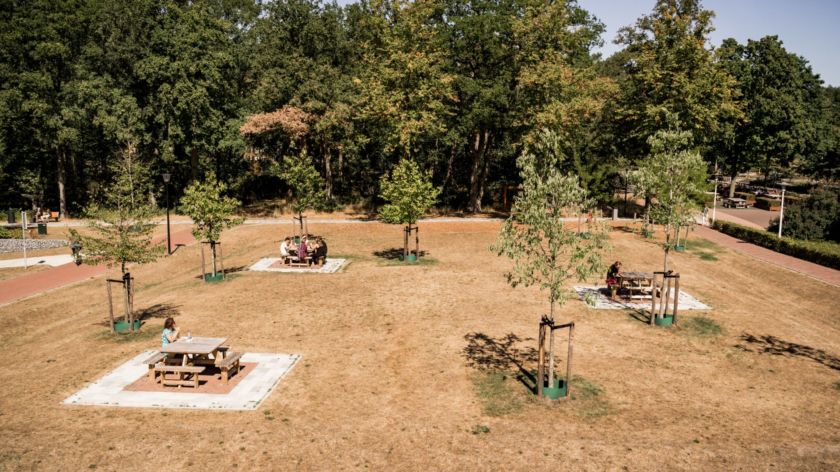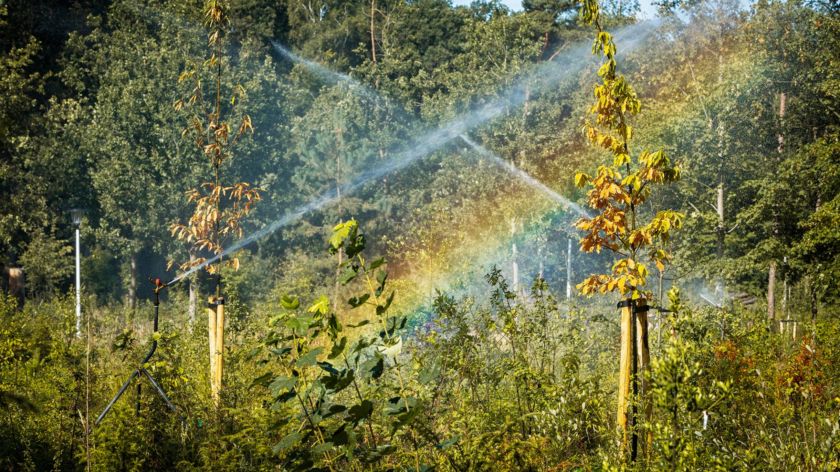-
 Foto: Johannes Fiebig
Foto: Johannes Fiebig -
 Het grasveld bij het Maria Montessorigebouw. Foto: Johannes Fiebig
Het grasveld bij het Maria Montessorigebouw. Foto: Johannes Fiebig -
 Het bos bij het Berchmanianum wordt regelmatig gesproeid. Foto: Dick van Aalst
Het bos bij het Berchmanianum wordt regelmatig gesproeid. Foto: Dick van Aalst
Acorns are falling from the trees and the young lawns have lost their green colour. Because of the extremely dry summer, the campus of Radboud University is starting to look more and more like an African savannah.
It is September and 2022’s meteorological summer is over. It will go down as the sunniest ever. Never before has the KNMI (Royal Netherlands Meteorological Institute, ed.) measured this much solar radiation in one season.
The consequences are clear as day on Radboud University’s campus. The young lawn around the Maria Montessori building has become a yellow savannah. In the forest, hikers walk over the acorns that would normally still hang in the trees for a couple more weeks – a sign that the trees have turned on their survival mode.
Frugal water usage
Shouldn’t more water be sprayed? The site managers of the university and hospital are reluctant to do so. Only young plants, such as the ones near the new entrance of the Radboudumc and the trees around the Montessori building, are pampered with a regular drink of water, says Terry Willems of Campus & Facilities.
Most water goes to the young trees and bushes in the old pine forest bordering Brakkenstein. After the old pines fell victim to the European spruce bark beetle (a bug that eats trees) and the drought these last years, over six thousand plants and trees were planted there. The young beeches, birches, hazelnut trees and other greenery are supposed to grow into a lush new forest.
The sprinkler system is therefore regularly switched on. ‘Otherwise we can start all over again with planting next year’, says Willems.
Climate change
The lawns on campus will have to save themselves. The expectation and hope is that they will recover once it starts raining again. ‘But don’t hold me to it’, says Willems. ‘We too have no experience with such dry summers.’
Due to climate change, it is expected that the campus will have to endure extreme drought more often in the future. Willems expects that future choices for new planting will take this into account.
Moreover, weather extremes bring new dilemmas. ‘In recent years, some lawns are mowed less often. Because that is good for the animals’, Willems explains. ‘But there is also a downside: the long grass increases the risk of fires. Therefore we recently decided to start mowing again.’
Translated by Jan Scholten



